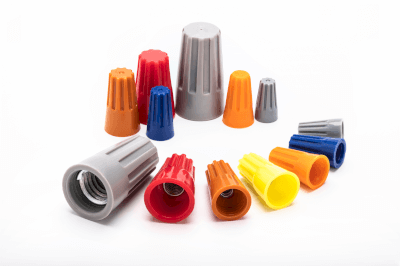What Is a Protective Cap?

A protective cap is a cover designed to be placed over or inserted into objects with sharp edges or potentially hazardous parts, such as wires, round bars, pipes, bolts, nuts, threads, connectors, and cables. These caps are used to prevent contamination from foreign matter and dust, protect against rust, cover cut surfaces, and prevent injuries.
Protective caps come in various materials, including silicon, polyethylene, and polyvinyl chloride (PVC) resin. They are available in different colors, hole sizes, and thicknesses, with options like luminescent, square, and hexagonal shapes. The caps are also available in specific types, such as round tip, square, and screw head types for hexagonal bolts, allowing for selection based on specific applications.
Uses of Protective Caps
Protective caps are utilized in various industries, including automotive, industrial, and construction sectors. They serve to protect the ends of wires, cables, steel pipes, and connectors, as well as to safeguard protruding parts to prevent injuries. Examples of their use include:
- Covering the ends of wires and thin pipes
- Protecting the tips of control buttons
- Providing tip protection and vibration isolation for bon pins
- Protecting banana connectors
- Insulating screw caps for current-carrying terminals
- Capping single pipe bolts
- Using as Mekura caps for vacant piping terminals in automobiles
- Masking applications in painting processes
Principle of Protective Caps
When selecting protective caps, it is important to choose a material that suits the application, considering factors such as durability, heat resistance, chemical resistance, electrical insulation, and oil resistance. Materials commonly used for protective caps include:
- Soft PVC (Polyvinyl Chloride): Frequently used for screw caps due to its ease of fitting and removal, tear resistance, electrical insulation, oil and chemical resistance, cold and abrasion resistance, aging resistance, and flexibility.
- Silicone: Known for its high heat resistance of up to 220 °C and stability under ultraviolet exposure and outdoor conditions. Silicone caps are available in various colors.
- EPDM (Ethylene Propylene Diene Rubber): Offers excellent weather, ozone, aging, and solvent resistance, but is not suitable for oil-rich environments due to its lower oil resistance.
- Polyethylene: Resistant to alkalis but susceptible to strong acids, usable from -60 °C to 90 °C, often used for pipe and thread caps.
When choosing a size, it is advisable to select a cap slightly smaller (about 1mm) than the diameter of the part to ensure a secure fit and prevent the cap from falling out.